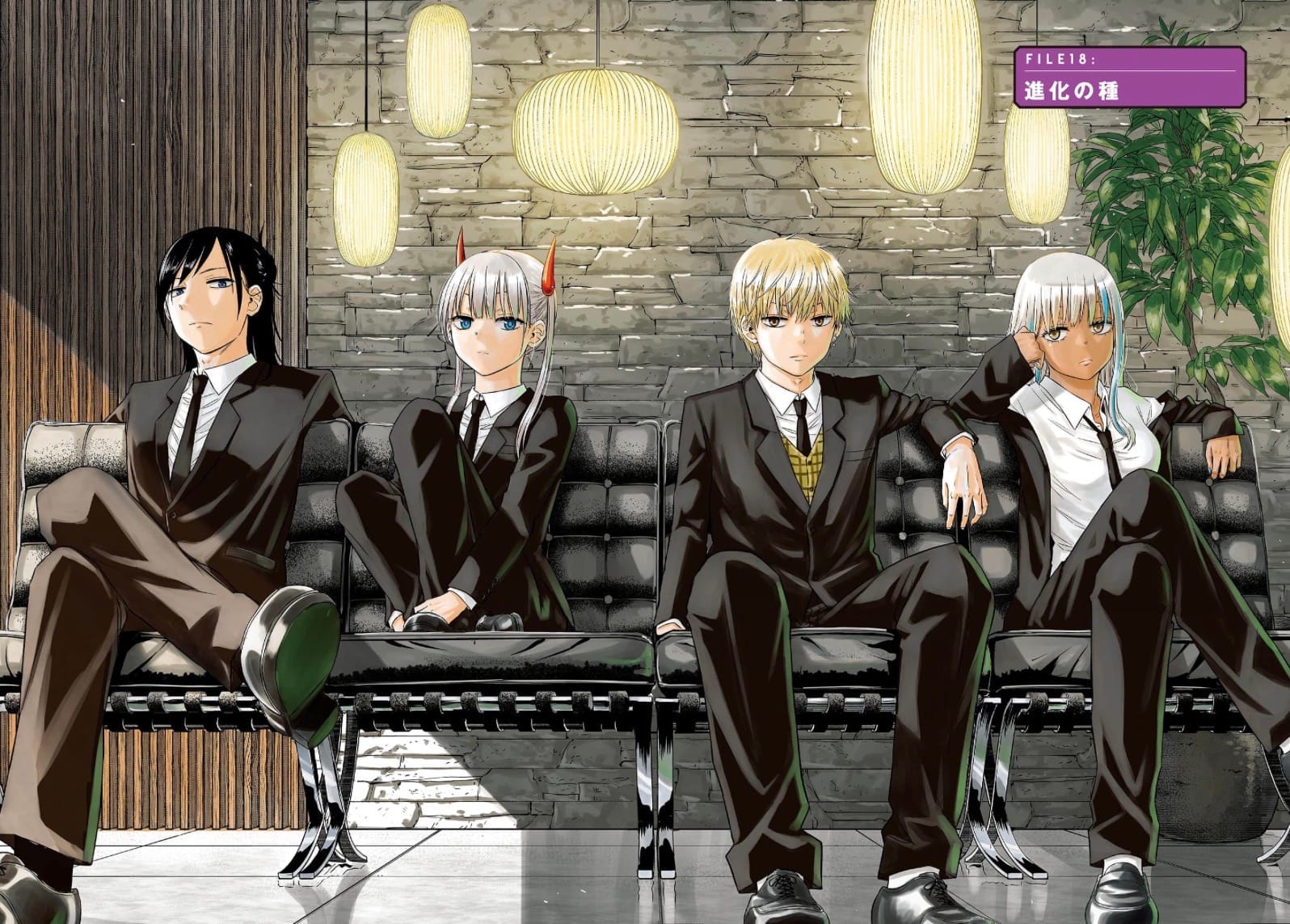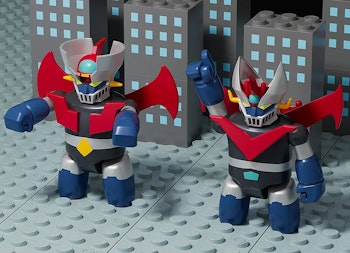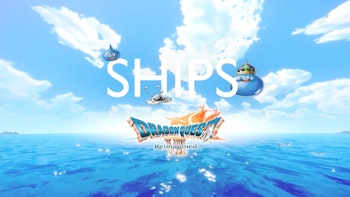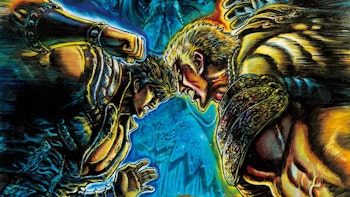
There was a time when the name Ryuhei Tamura was inseparable from that of Weekly Shonen Jump. After winning the Golden Future Cup in 2008 with Beelzebub, all of Tamura’s subsequent works lived and died in the magazine, but COSMOS is different. Not only does this mark the first time that the veteran author has drawn for another publication, the series as a whole feels like a real attempt to break away what has defined his career up until this point… for better and for worse.
It’s not hard to see why Tamura would choose to make so many changes after considering his output post-Beelzebub’s conclusion in 2015. Hungry Marie only ran for eight months and 32 chapters in 2017, while Hard-Boiled Cop and Dolphin in 2020 fared just a little better with a grand publication total of one year and 47 chapters. For whatever reason, it just seemed like Tamura couldn’t quite follow up his smash hit debut work in the pages of Weekly Shonen Jump, perhaps prompting the move to the lesser-known Monthly Sunday GX.

To be clear, there isn’t that much separation between the two magazines. Jump is published by Shueisha and GX by Shogakukan, but both companies are owned by the Hitotsubashi Group and even operate a joint production company by the name of Shogakukan-Shueisha Productions Co., Ltd. Nevertheless, the nominal change in imprint only serves to underscore a larger point: Tamura is almost unrecognizable as an author in COSMOS, even if said difference only goes skin deep.
If one thing’s clear from reading all of Tamura’s work up until now, it’s that he really likes delinquents. Aside from the protagonist of Beelzebub, the main character of Hungry Marie has links to them and the policeman in Hard-Boiled Cop and Dolphin also solves crime in a distinctly rough-and-tumble way. The fact that COSMOS doesn’t really have anything to do with them is therefore quite significant, marking the first step away from Tamura’s usual formula.
What if, like all the conspiracy theories claim, aliens really had made first contact with world governments behind closed doors and lived among us in secret? COSMOS posits a world where this fantasy has become a reality, but with a somewhat mundane twist: just like humans with cars and travel, aliens need to purchase insurance to offset all of the risks that come with integrating into human society. The only difference is that some aliens might have the ability to rip apart a human with their bare hands, while humans only need to worry about natural accidents.

Kaede Mizumori is a normal high school student with no knowledge of aliens… until his classmate turns out to be one in disguise. The ensuing incident functions as his first meeting with the emotionless wunderkind of alien insurance, Rin Homura, who immediately head hunts him on account of his supernatural ability to “smell” lies on a person. What follows is the tale of Kaede’s entry into extraterrestrial insurance firm COSMOS and the cases his team takes on, blending Men in Black with Law & Order.
Further to the lack of delinquents, the second thing that makes COSMOS stand out from all of Tamura’s other work is its genre trappings. While both Beelzebub and Hungry Marie borrowed heavily from the supernatural, the designation is almost definitely hard science fiction here, complete with space travel and more technobabble than you can shake a stick at. Indeed, you can tell that Tamura is having a lot of fun drawing on the tropes of the genre, with one standout chapter being Rin’s solo battle against a mysterious floating circle that looks like it came straight from an episode of Ultraman.
Where COSMOS falls down, however, is in its inability to go beyond mere tropes and craft something truly meaningful within the science fiction genre. Given the concept of alien insurance, one theme that does present itself in the early chapters is how even the fantastical becomes bureaucratized at a certain point, but this quickly fades when Kaede’s squad turns out to be an ace team sent to beat up bad guys with somewhat shaky jurisdiction. Furthermore, Tamura completely fails to draw on the obvious parallels between aliens on this fictional Earth and refugees, asylum seekers or immigrants in the real world.

All of that isn’t to say, however, that COSMOS isn’t fun to read. Far from it: while the overall setting and thematic content might leave something to be desired, the moment-to-moment plotting and action is definitely emblematic of Tamura’s many years of experience as an artist. Watching Kaede and his teammates take down insurance frauds with extraordinary gadgets in their sleek black suits looks pretty badass, but just don’t expect there to be much beyond that.
If there’s one aspect in which Tamura’s latest does stand head and shoulders above everything else he’s put out thus far, it’s the characters. Partially by discarding the delinquent gimmick, Tamura has created in COSMOS a truly likeable main cast with interesting inter-personal relationships and a sense of belonging that will surely keep readers coming back for more. Indeed, they already are: not only did the series come in the second place of the print manga category at this year’s 2025 Next Manga Awards, it has surpassed 800,000 copies in circulation as of October 2025.
The legacy of Beelzebub has arguably been looming over Tamura ever since the first one-shot was published more than fifteen years ago. With Cosmos, it seems like he might have managed to escape its shadow, but at what cost? Although he might be reaching for the stars, whether his place among them is secured remains to be seen.
You can read COSMOS in English via VIZ Manga.










